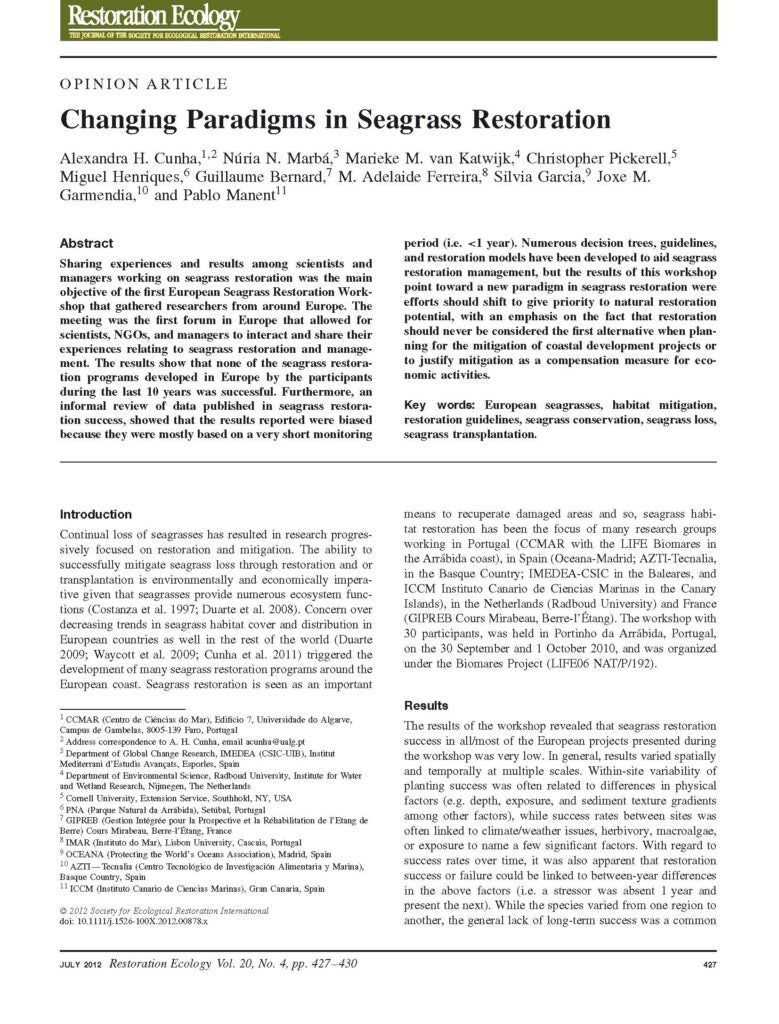Report | July 20, 2017
Changing Paradigms in Seagrass Restoration
Sharing experiences and results among scientists and managers working on seagrass restoration was the main objective of the first European Seagrass Restoration Workshop that gathered researchers from around Europe. The meeting was the first forum in Europe that allowed for scientists, NGOs, and managers to interact and share their experiences relating to seagrass restoration and management. The results show that none of the seagrass restoration programs developed in Europe by the participants during the last 10 years was successful. Furthermore, an informal review of data published in seagrass restoration success, showed that the results reported were biased because they were mostly based on a very short monitoring period (i.e. <1 year). Numerous decision trees, guidelines, and restoration models have been developed to aid seagrass restoration management, but the results of this workshop point toward a new paradigm in seagrass restoration were efforts should shift to give priority to natural restoration potential, with an emphasis on the fact that restoration should never be considered the first alternative when planning for the mitigation of coastal development projects or to justify mitigation as a compensation measure for economic activities.



